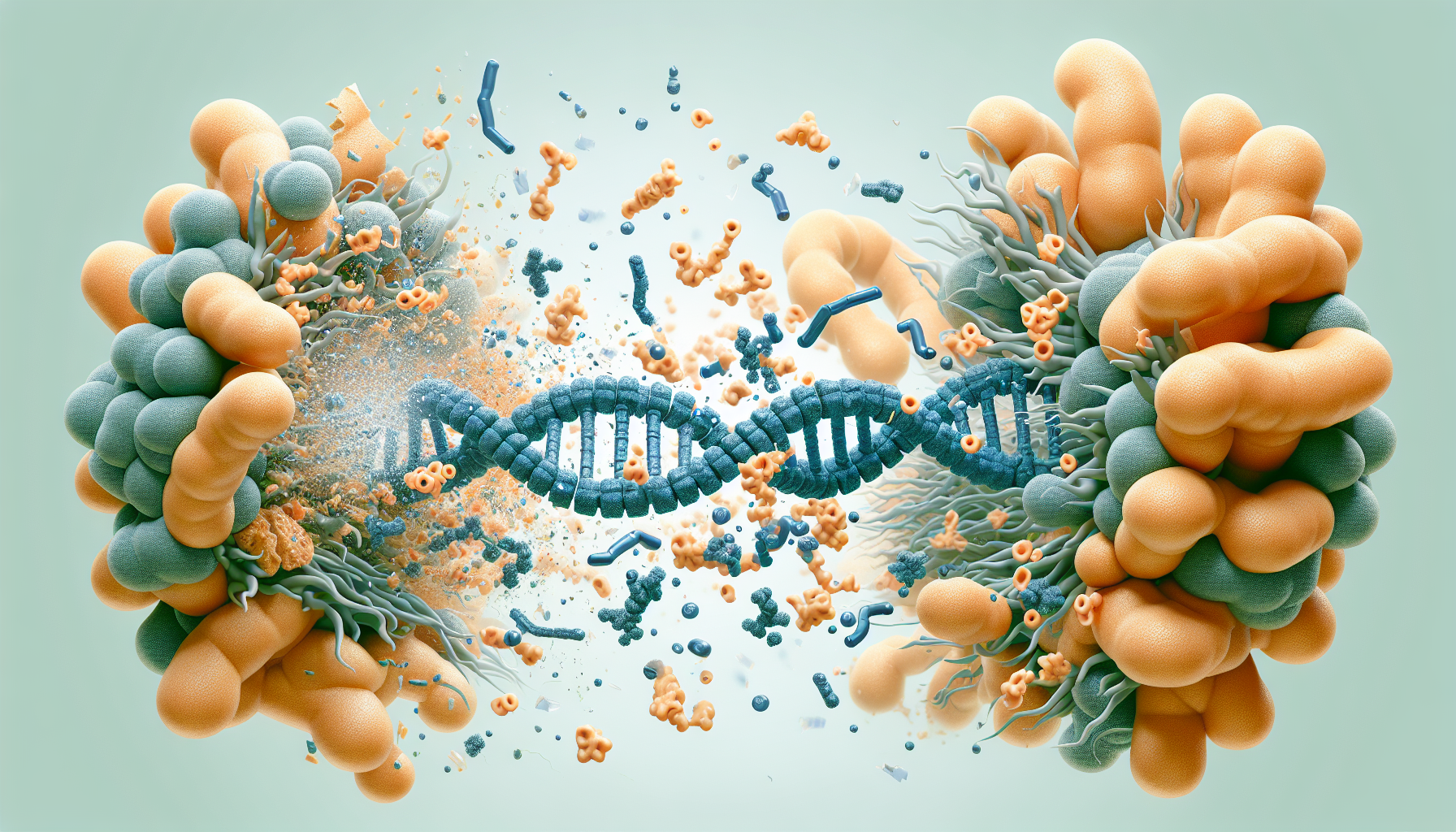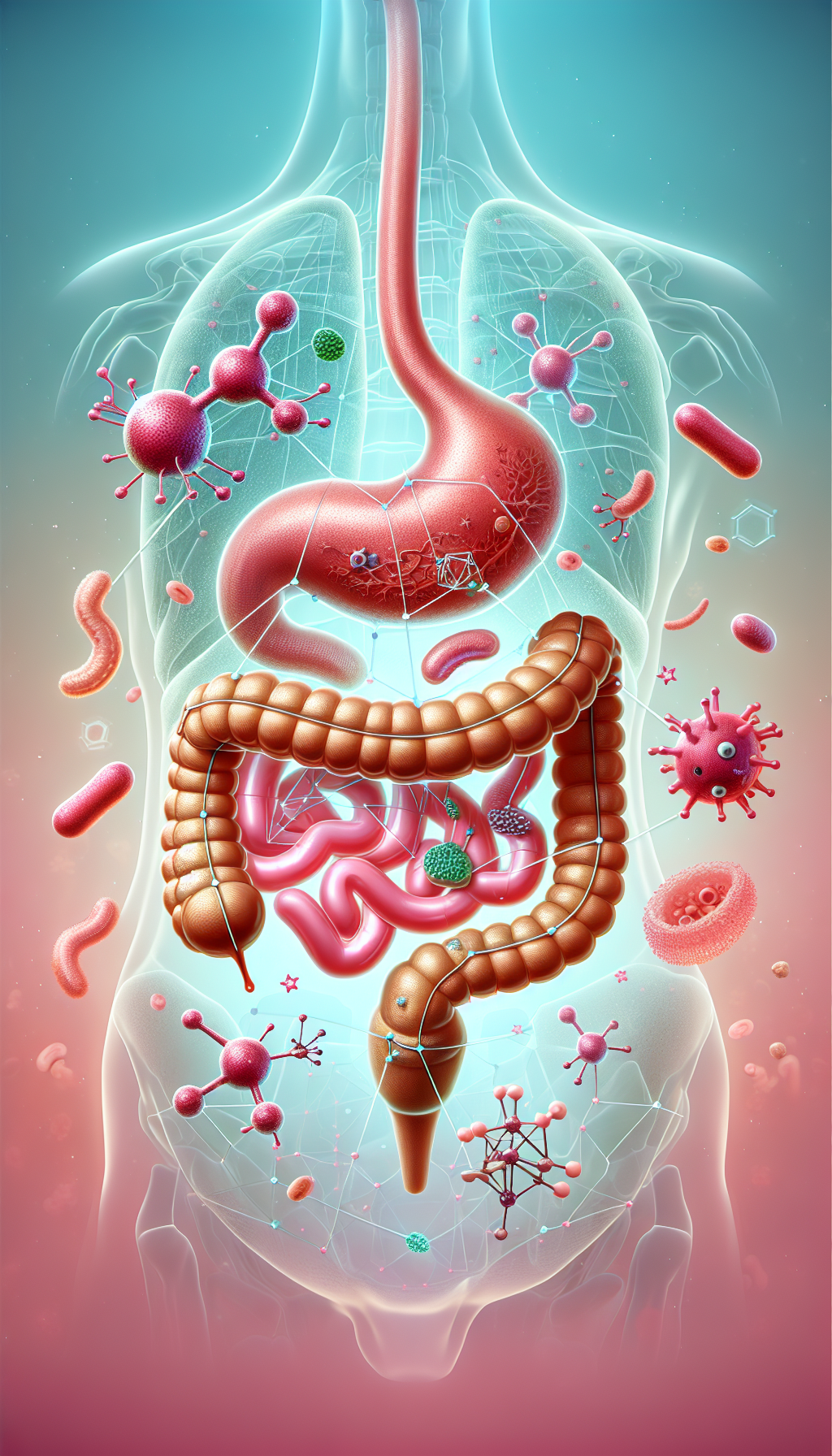Gluten, a protein complex found in wheat, barley, and rye, has become a significant part of modern diets. For some, however, digesting gluten can be a challenge, leading to various health issues ranging from digestive discomfort to serious conditions like celiac disease. Fortunately, an understanding of the role digestive enzymes play in gluten digestion can offer insights into managing these challenges effectively.
Understanding Gluten and Digestive Challenges
Gluten is composed of two main proteins, gliadin and glutenin, which are responsible for the elasticity and rise of dough. When consumed, these proteins need to be broken down into smaller peptides and amino acids for proper absorption by the body. This is where digestive enzymes come into play.
For individuals with gluten sensitivity or celiac disease, the ingestion of gluten leads to an immune response that damages the lining of the small intestine. This impairs nutrient absorption and can cause symptoms such as bloating, gas, diarrhea, and even long-term complications if not managed properly.
The Role of Digestive Enzymes
Digestive enzymes are proteins that catalyze the breakdown of food into nutrients that can be absorbed. Specifically, proteases are the enzymes responsible for breaking down proteins like gluten. The process begins in the stomach and continues into the small intestine, where the majority of digestion and absorption occurs.
However, the proteases produced by the human digestive system may not always effectively break down gluten peptides. This inefficiency can lead to the aforementioned symptoms in sensitive individuals. To address this, supplemental digestive enzymes are often recommended to aid in the digestion of gluten.
Supplemental Enzymes and Gluten Breakdown
Supplemental digestive enzymes, particularly those containing DPP-IV (dipeptidyl peptidase IV), have been shown to help break down gluten peptides more completely. DPP-IV is specific for proline-rich peptides, which are abundant in gluten. By enhancing the breakdown of gluten in the digestive tract, these supplements can help reduce the occurrence of symptoms in those with gluten sensitivity.
For comprehensive information on digestive health and enzyme supplementation, Avix Health’s section on Digestive Health provides valuable insights.
The Link Between Enzymes and Gut Health
The health of the gut is closely tied to the efficiency of digestion. When gluten is not adequately broken down, it can lead to inflammation and an imbalance in gut flora, further exacerbating digestive problems. By improving the breakdown of gluten, digestive enzymes support the overall health of the gastrointestinal system.
Incorporating natural enzymes into one’s diet, as discussed in "Using Natural Enzymes to Enhance Digestive Health," can also contribute to improved gut health. Enzyme-rich foods like papaya, which contains papain, and pineapple, which provides bromelain, can naturally support the digestive process.
Diet, Lifestyle, and Managing Gluten Digestion
While supplemental enzymes are helpful, a holistic approach to managing gluten digestion is essential. This includes tailoring one’s nutrition to avoid gluten when necessary and choosing foods that naturally support digestive health. For those with celiac disease or severe gluten intolerance, a gluten-free diet is paramount to maintaining intestinal health and preventing damage to the digestive tract.
Lifestyle factors such as stress management and exercise can also impact gut health and digestion. Chronic stress, for instance, has been shown to affect gut microbiota composition, as explained in the article "The Effects of Chronic Stress on Gut Microbiota Composition." Regular physical activity has been linked to improved bowel regularity and overall digestive function.
Advanced Strategies for Gluten Digestion
Beyond enzymes and lifestyle changes, there are other strategies for managing gluten digestion. Probiotics, for example, can help maintain a healthy gut flora, potentially reducing the impact of gluten in sensitive individuals. The article "The Influence of Probiotics on Antibiotic-Associated Diarrhea" offers insights into the benefits of probiotics in digestive health.
For those seeking to understand the connection between gluten digestion and systemic health, exploring the "Gut-Brain Axis" can be enlightening. The gut and brain communicate directly, and digestive disturbances can affect mood, cognitive function, and overall well-being. The article "Assessing the Health of the Gut-Brain Axis" delves into this intricate relationship.
External Resources for Further Reading
To further support the points made in this article, here are some niche and specific resources:
- The Celiac Disease Foundation provides comprehensive information on celiac disease, including the role of gluten in triggering immune responses.
- Research on the efficacy of DPP-IV enzymes in breaking down gluten peptides can be found in peer-reviewed scientific journals.
- The International Foundation for Gastrointestinal Disorders offers resources on managing various digestive conditions, including those related to gluten intolerance.
- Detailed explorations of the gut-brain connection can be accessed through the American Psychological Association.
- For insights into the impact of exercise on gut health, the National Institute of Diabetes and Digestive and Kidney Diseases provides research and guidelines.
By leveraging digestive enzymes, either naturally occurring in foods or through supplements, and adopting a holistic view of diet and lifestyle, individuals can better manage gluten digestion and optimize their digestive health. As research continues to unfold, the intricate workings of our digestive systems and the tools available to maintain their health will no doubt become even clearer.



